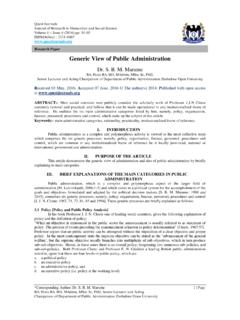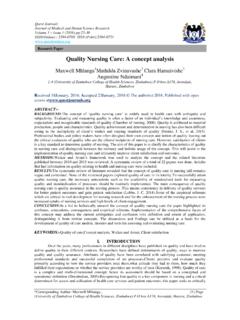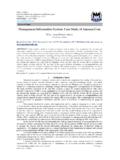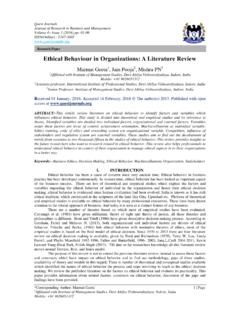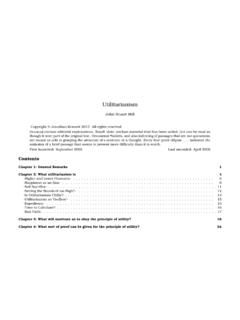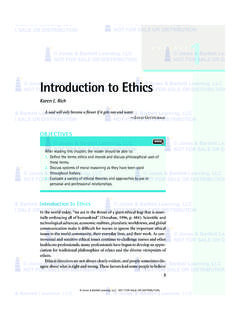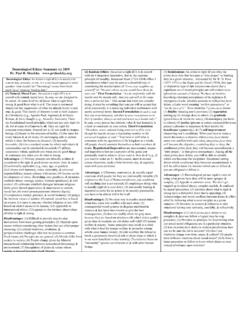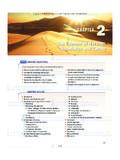Transcription of Ethical Behaviour in Organizations: A Literature Review
1 Quest Journals Journal of Research in Business and Management Volume 4~ Issue 1 (2016) pp: 01-06 ISSN(Online) : 2347-3002 *Corresponding Author: Marmat Geeta1 1 | Page 1 Affiliated with Institute of Management Studies, Devi Ahilya Vishwavidyalaya, Indore, India Mobile: +91 9826051312 Research Paper Ethical Behaviour in Organizations: A Literature Review Marmat Geeta1, Jain Pooja2, Mishra PN3 1 Affiliated with Institute of Management Studies, Devi Ahilya Vishwavidyalaya, Indore, India Mobile: +91 9826051312 2 Assistant professor, International Institute of Professional Studies, Devi Ahilya Vishwavidyalaya, Indore, India 3 Senior Professor, Institute of Management Studies, Devi Ahilya Vishwavidyalaya, Indore, India Received 01 January, 2016; Accepted 16 February, 2016 The author(s) 2015.
2 Published with open access at ABSTRACT:-This article Review Literature on Ethical behavior to identify factors and variables which influences Ethical behavior. This study is divided into theoretical and empirical studies and its relevance to theory. Identified variables are divided into individual factors, organizational and external factors. Variables under these factors are locus of control, achievement orientation, Machiavellianism as individual variable. Ethics training, code of ethics and rewarding system are organizational variable.
3 Competition, influence of stakeholders and regulation system are external variables. These studies aim to find out the development of trends from seventies to two thousands fifteen in the studies of Ethical behavior. This Review provides insights to the future researchers who want to research related to Ethical behavior. This Review also helps professionals to understand Ethical behavior in context of their organization to manage Ethical aspects in to their organizations in a better way. Keywords:- Business Ethics, Decision Making, Ethical Behavior, Machiavellianism, Organization, Stakeholders I.
4 INTRODUCTION Ethical behavior has been a cause of concern since very ancient time. Ethical behavior in business practice has been developed continuously. In modern time, Ethical behavior has been looked as important aspect of the business success. There are lots of theoretical and empirical studies which explain the factors and variables impacting the Ethical behavior of individual in the organization and hence their Ethical decision making, Ethical behavior is evidenced since human civilization had been evolved.
5 India is known as it has rich Ethical tradition, which envisioned in the scriptures of the land like Gita, Upnishad etc. Plethora of theoretical and empirical studies is available on Ethical behavior by many professional executives. These have been drawn attention to the Ethical approach of business. And today it is seen as a distinct feature of any business. There are a number of theories based on which most of empirical studies have been evaluated, Cavanagh et al. (1981) have given utilitarian, theory of right and theory of justice, all these theories and philosophies is different.
6 Hunt and Vitell (1986) have given descriptive decision making process. According to Gresham, Ferrel and Mclaves N. (2013), both organizational and individual factors are drivers of Ethical behavior. Fritzche and Becke, (1984) link Ethical behavior with normative theories of ethics, most of the empirical studies is based on the Rest model of Ethical decision. Since 1970 to 2013 there are four Literature Review on Ethical decision making is available, given by Ford and Richardson (1978), Terry W.
7 Loe, Linda Ferrell, and Phylis Mansfield 1992-1996, Fallen and Butterfield, 1996- 2003, 2004-2011, Kevin Lennert-Yung-Hwal Park, Nitish Singh (2013). Till date so far researchers knowledge all this Literature Review moves around Trevino, Rest, and Jones model. The purpose of this Review is not to extend the previous Literature Review , instead to assess those factors and constructs which have impact on Ethical behavior and to find out methodology, gaps of those studies, availability of theory and models in this regard.
8 There is number of theoretical and conceptual studies available which identified the nature of Ethical behavior the process and steps involving to reach to the Ethical decision making. We Review the published Literature on the factors on Ethical behavior and evaluate its practicality. This paper provides information about related factors, constructs on Ethical behavior, discussion of the gaps and findings have been provided. Ethical Behaviour in Organizations: A Literature Review *Corresponding Author: Marmat Geeta1 2 | Page II.
9 THEORETICAL STUDIES AND MODELS ON Ethical Behaviour Review of existing theories and models evidenced that there are plethora of models and theories available on Ethical behavior. Ferrell and Gresham (1985) included individual and organizational factors as contingency and argued that Ethical dilemma emerges from the social, cultural environment. He related his model to existence of professional codes, corporate policy, reward and punishment in his contingency frame. In general, theory of marketing ethics showed that perceptions of Ethical problems and consequences gone through the deontological and teleological evaluation lead to Ethical judgment and then intention tend situational constraint affect the Ethical behavior.
10 The four component of Ethical behavior, Rest (1986) of behavioral process in which each component is distinct to each other, on the basis of four component model, Trevino (1986) introduced person situation interactionist model, he introduced individual and situational factor as moderated which impact moral judgment to reach to the behavioral stage. As an individual factor he included ego strength field and locus of control. As situational factors he included elements of immediate job context, organizational culture and character of work.

